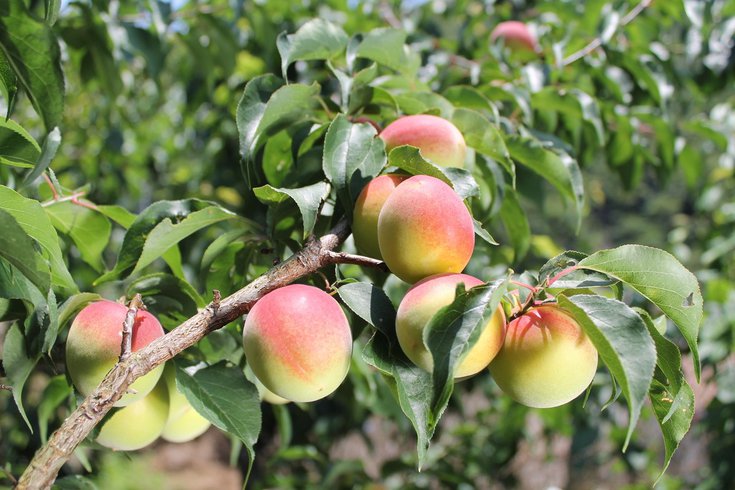
June 14, 2023
 Provided Image/Temple University
Provided Image/Temple University
Juice concentrate from the Japanese plum, also known as the ume fruit, can be effective in preventing hypertension, according to new research out of Temple University.
A Japanese fruit known for its sweetness may be a valuable resource to combat high blood pressure, one of the major causes of cardiovascular disease, which affects more than 120 million Americans.
Since at least the 18th century, juice concentrate from the Japanese plum has been touted as a health remedy for the prevention of heart disease. Limited research has supported this idea, but few studies have been done to confirm and understand how the Japanese plum reduces hypertension.
The smooth, firm-skinned fruit, also known as ume, originally is native to central China but has been cultivated in Japan for more than 1,000 years and is widely consumed in Asian countries. It is now more commonly grown in the United States and has become more popular among gardeners in areas, like California, that have temperate climates.
Despite the "plum" name, the plants that grow these fruits are more similar to those that produce apricots. The taste of the ripe, yellow-red fruit often is described as a mix of apricot and peach. In raw form, when the fruit is still green, the seeds and flesh contain toxins that can be harmful to people if they're consumed in large quantities.
Juice concentrate from Japanese plums, called bainiku-ekisu, often is infused into juice drinks and wines in Japan. It's becoming more trendy for ume wines and syrups to be used as ingredients in cocktails, too. In the U.S., the concentrate can be found at Asian specialty markets or purchased as low-calorie snacks and supplements at stores like Walmart and Whole Foods.
But can the juice concentrate really be relied on to control high blood pressure?
Researchers at Temple University decided to put the Japanese plum's benefits to the test by conducting a series of experiments on mice. The research was motivated by the limitations of drugs used for people with high blood pressure, which often is treated by using combinations of alpha and beta blockers. These drugs relax muscles and slow the heart rhythm in order to ease blood vessels and improve circulation.
"It is recognized that drugs alone are not enough to reduce the risk of cardiovascular disease in hypertension patients," said Satoru Eguchi, a cardiovascular health researcher and senior investigator on the new study. "To help solve this problem, we became interested in a supplement that could potentially decrease cardiovascular disease risk and began investigating the effects of bainiku-ekisu, an infused juice concentrate of the Japanese plum."
The study sought to expand on past research that showed bainiku-ekisu is useful in reducing the effects of a circulatory hormone that plays a role in developing high blood pressure, formally known as hypertension.
Researchers gave mice infusions of this hormone, called angiotensin II, to cause high blood pressure in two groups of mice. One group was then given plain water, while the second group was given water that contained bainiku-ekisu.
Results from the study, published in the online journal Hypertension Research, showed stark differences between the two groups of mice. The mice that were given bainiku-ekisu did not develop hypertension and their blood vessels were found to have been protected by the juice concentrate, which minimized growth and enlargement of their aortas, the largest artery in their bodies. The researchers also found that the infusion reduced inflammation from the immune response associated with hypertension.
By comparison, the mice that were given plain water showed significant growth and enlargement of their aortas.
The researchers suggested that bainiku-ekisu can be beneficial in regulating the way cells break down glucose, preventing a metabolic process known as glycolysis.
"In hypertension, cells shift from aerobic metabolism to glycolysis because there is less oxygen available in the cellular environment," Eguchi said. "This switch results in high levels of oxidative stress, which leads to more inflammation, more vascular stiffness, and, eventually, the development of more severe cardiovascular disease."
As a next step, Eguchi and his colleagues plan to identify and study the specific compounds in bainiku-ekisu that provide protective benefits. Further research could support ume's reputation as a traditional remedy by better describing the ways it supports cardiovascular health.
"There may be two or three compounds working together, which could explain why the infused juice concentrate of Ume is so popular as a health supplement," Eguchi said. "Multiple compounds working together would produce additive or synergistic effects that might be lost in a pharmaceutical preparation."